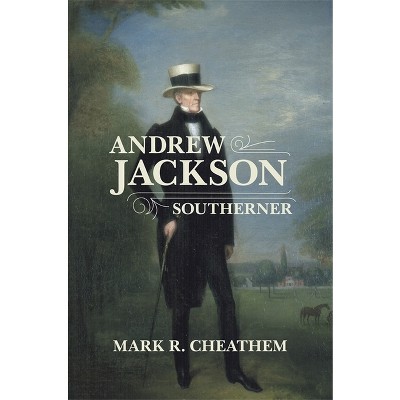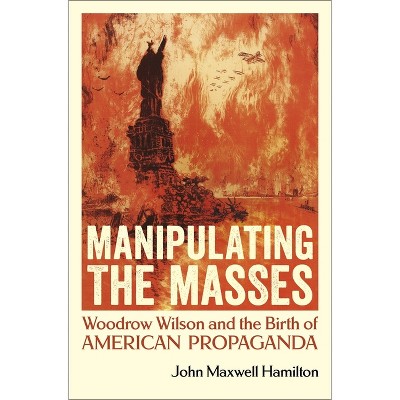Sponsored

Instruments of Empire - by Michael K Beauchamp (Hardcover)
In Stock
Sponsored
About this item
Highlights
- M. K. Beauchamp's Instruments of Empire examines the challenges that resulted from U.S. territorial expansion through the Louisiana Purchase of 1803.
- About the Author: M. K. Beauchamp is associate professor of history at Rogers State University.
- 328 Pages
- History, United States
Description
About the Book
"Michael Beauchamp's "Instruments of Empire" is an examination of the challenges posed to U.S. territorial expansion by the Louisiana Purchase, a development that transferred the sovereignty of a territory with a population who by birth, language, and religion differed substantially from the inhabitants of the United States, but who had been guaranteed the rights of full citizens. Beauchamp suggests that the subsequent process of gradual accommodation between federal officials and local elites in Louisiana served as an essential nationalizing experience as the United States expanded during the nineteenth century. After the U. S. acquired the region, federal officials failed to put the Territory of Orleans on a quick path to statehood due to doubts about the loyalty of the local population and their capacity for self-government. Instead, U.S. officials looked to other supporters, including free people of color, native Americans, and recent immigrants, all of whom found themselves ideally placed to negotiate for greater privileges from the new government. Beauchamp argues that U.S. administrators, despite claims to impartiality and equality before the law, regularly acted as agents of imperial power in applying different rules to different peoples. Most importantly, the new territorial government, in its appointment practices, strove to assign local elites to prominent positions within the parishes. Overall, the methods utilized by the United States in governing Louisiana had much in common with European colonial practices elsewhere on the North American continent. Beauchamp's study is one of the first to fully explore the interactions of U.S. officials and local elites in the territory from the perspective of the people who actually underwent this experience. He places early Louisiana in the broader national and international contexts that both shaped the early state and contoured the nation and region, revealing that Louisiana was not exceptional or outside the American mainstream. His work offers transformational insights about the interplay between class, ethnicity, and race, as well as an understanding of colonialism, the nature of republics, democracy, and empire. It also places the territorial period in early national Louisiana in an imperial context that reshapes perceptions of American expansion and manifest destiny in the nineteenth century and beyond. Beauchamp's work will be of interest not only to specialists in Louisiana and the South, but also to scholars of slavery and free people of color, nineteenth-century American history, Atlantic World and border studies, U.S. foreign relations, and the history of colonialism and empire"--Book Synopsis
M. K. Beauchamp's Instruments of Empire examines the challenges that resulted from U.S. territorial expansion through the Louisiana Purchase of 1803. With the acquisition of this vast region, the United States gained a colonial European population whose birthplace, language, and religion often differed from those of their U.S. counterparts. This population exhibited multiple ethnic tensions and possessed little experience with republican government. Consequently, administration of the territory proved a trial-and-error endeavor involving incremental cooperation between federal officials and local elites. As Beauchamp demonstrates, this process of gradual accommodation served as an essential nationalizing experience for the people of Louisiana.
After the acquisition, federal officials who doubted the loyalty of the local French population and their capacity for self-governance denied the territory of Orleans--easily the region's most populated and economically robust area--a quick path to statehood. Instead, U.S. officials looked to groups including free people of color, Native Americans, and recent immigrants, all of whom found themselves ideally placed to negotiate for greater privileges from the new territorial government. Beauchamp argues that U.S. administrators, despite claims of impartiality and equality before the law, regularly acted as fickle agents of imperial power and frequently co-opted local elites with prominent positions within the parishes. Overall, the methods utilized by the United States in governing Louisiana shared much in common with European colonial practices implemented elsewhere in North America during the early nineteenth century. While historians have previously focused on Washington policy makers in investigating the relationship between the United States and the newly acquired territory, Beauchamp emphasizes the integral role played by territorial elites who wielded enormous power and enabled government to function. His work offers profound insights into the interplay of class, ethnicity, and race, as well as an understanding of colonialism, the nature of republics, democracy, and empire. By placing the territorial period of early national Louisiana in an imperial context, this study reshapes perceptions of American expansion and manifest destiny in the nineteenth century and beyond. Instruments of Empire serves as a rich resource for specialists studying Louisiana and the U.S. South, as well as scholars of slavery and free people of color, nineteenth-century American history, Atlantic World and border studies, U.S. foreign relations, and the history of colonialism and empire.Review Quotes
"Beauchamp delivers a fine-grained analysis of how officials cultivated and exercised authority during Louisiana's formative decade under the jurisdiction of (but not yet within) the United States. . . . Instruments of Empire is a clarifying contribution to Louisiana political history and a valuable addition to a field of scholarship on the early federal government in which continuities of political practice loom large."--Journal of Southern History
About the Author
M. K. Beauchamp is associate professor of history at Rogers State University.Shipping details
Return details
Frequently bought together


Trending Non-Fiction















